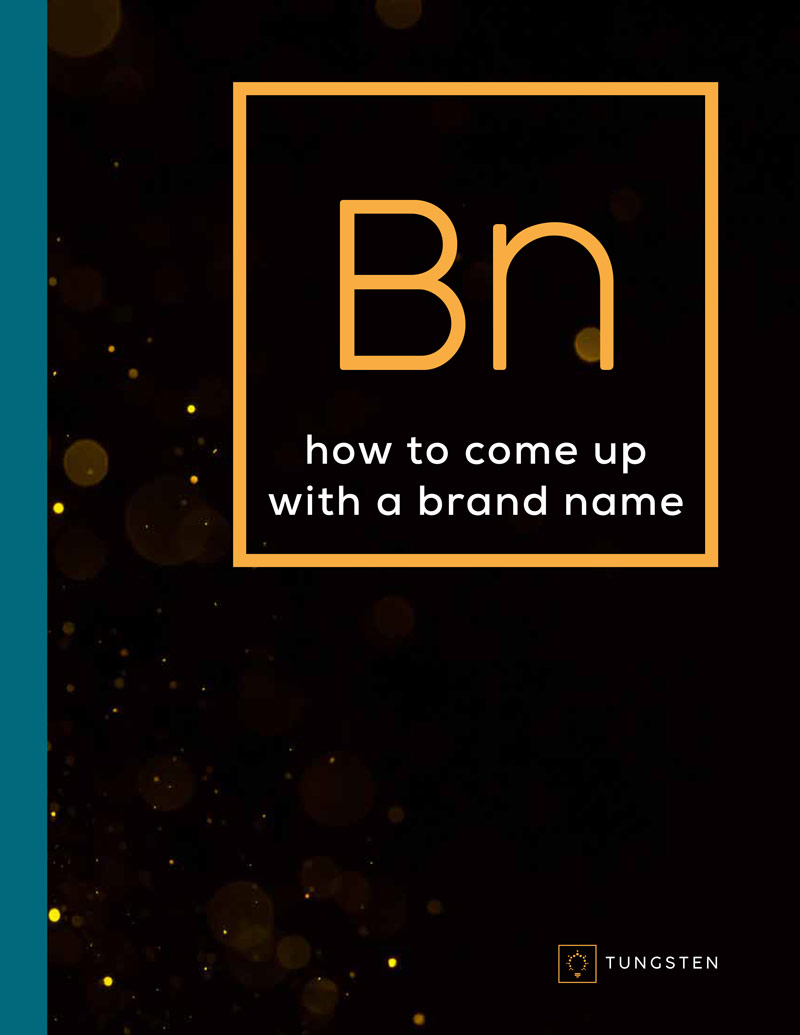When creating a new company, product or service, many entrepreneurs treat the naming of their business as an afterthought or final detail that needs nailing down before the big launch. With this thinking, the success of a new business hinges entirely on the business model and the plan of action, with little value placed on the actual name.
The irony is that something so insignificant can prove so crucial.
I often speak to clients who feel they shouldn’t really even have to be talking to me. “I thought we could do this ourselves, but we’ve spent three months at it and we’re getting nowhere.” Or, “We didn’t even include this in our budget, we didn’t think it would be an issue. No one knows what to call this thing.”
Now faced with an impending deadline, a trade show, a product launch, they are panicked.
Why is it that company naming is so undervalued, yet so often vital to a company’s future success?
The analogy I like to use, is comparing a company name to a suitcase handle. By itself, a handle is just a cheap piece of molded plastic. It’s inconsequential and not worth much as long as you don’t need to pick up your luggage. The moment you do, a handle becomes everything. Instead of using one hand, you use both. You struggle to get your arms around it. You can’t see ahead of yourself because your suitcase is in front of your face. It becomes heavy and awkward and you have trouble moving forward and knowing where to go.
A great brand name can’t make a bad company succeed. But a bad brand name can make a great company fail.
That also describes company owners who don’t have a firm grasp on their company name or brand identity. They end up explaining it, describing it, clarifying what it’s not, spelling it, repeating it – meanwhile missing the key opportunity to engage the potential customer and move the conversation forward. All because they lack a simple piece of plastic… the handle.
Remember when there was a war of sorts between Blu-Ray and HD DVD? Which was easier to say, to articulate, to pass along, to “carry?” Long before Blu-Ray won out, I had a firm suspicion that it would. The other format was a mouthful, and people tend to default to what they can language. Do you want Blu-Ray? Or an HD DVD player?
I see the same thing with current companies such as WebEx vs. GoToMeeting. Do you want to use WebEx or do you want to schedule a GoToMeeting meeting? The secret to sales is making it easy to buy. When we branded PODS, an early competitor was Door to Door Storage systems. It was far easier to define the new category as “PODS” than to say Door to Door Storage units. A number of companies in this industry now refer to their units as “PODS” even though it’s a trademarked name. That’s the power of a handle, a little piece of mental plastic.
The takeaway is this: A great brand name can’t make a bad company succeed. But a bad brand name can make a great company fail. CompUSA went into bankruptcy while Best Buy prospered. They sell many of the same things, but the Best Buy brand name is based on affordability and has a nice alliterative ring to it. It’s timeless. The CompUSA name was based on a mix of products and geography and became fixed and dated.
If you are in the midst of building your new business, your “suitcase” of products and offerings, be sure to take time to add that one vital piece of equipment that will allow your future customers to “grasp” the concept. Instead of a bulky brand identity, you’ll have an easy carry on!
About the author: With over twenty five years of company naming and branding expertise, Tungsten founder Phil Davis is a marketing and advertising veteran, having personally named over 250 companies, products and services worldwide. As a sought after branding expert, Phil has been quoted in The Wall Street Journal, Inc.com, Businessweek, Entrepreneur, and Newsday.
BY Phil Davis
Brand Naming Expert
With over twenty-five years of company naming and branding expertise, Tungsten founder Phil Davis is a marketing and advertising veteran, having personally named over 250 companies, products and services worldwide. As a sought-after naming expert, Phil has been quoted in The Wall Street Journal, Inc.com, Businessweek, Entrepreneur, and Newsday.




